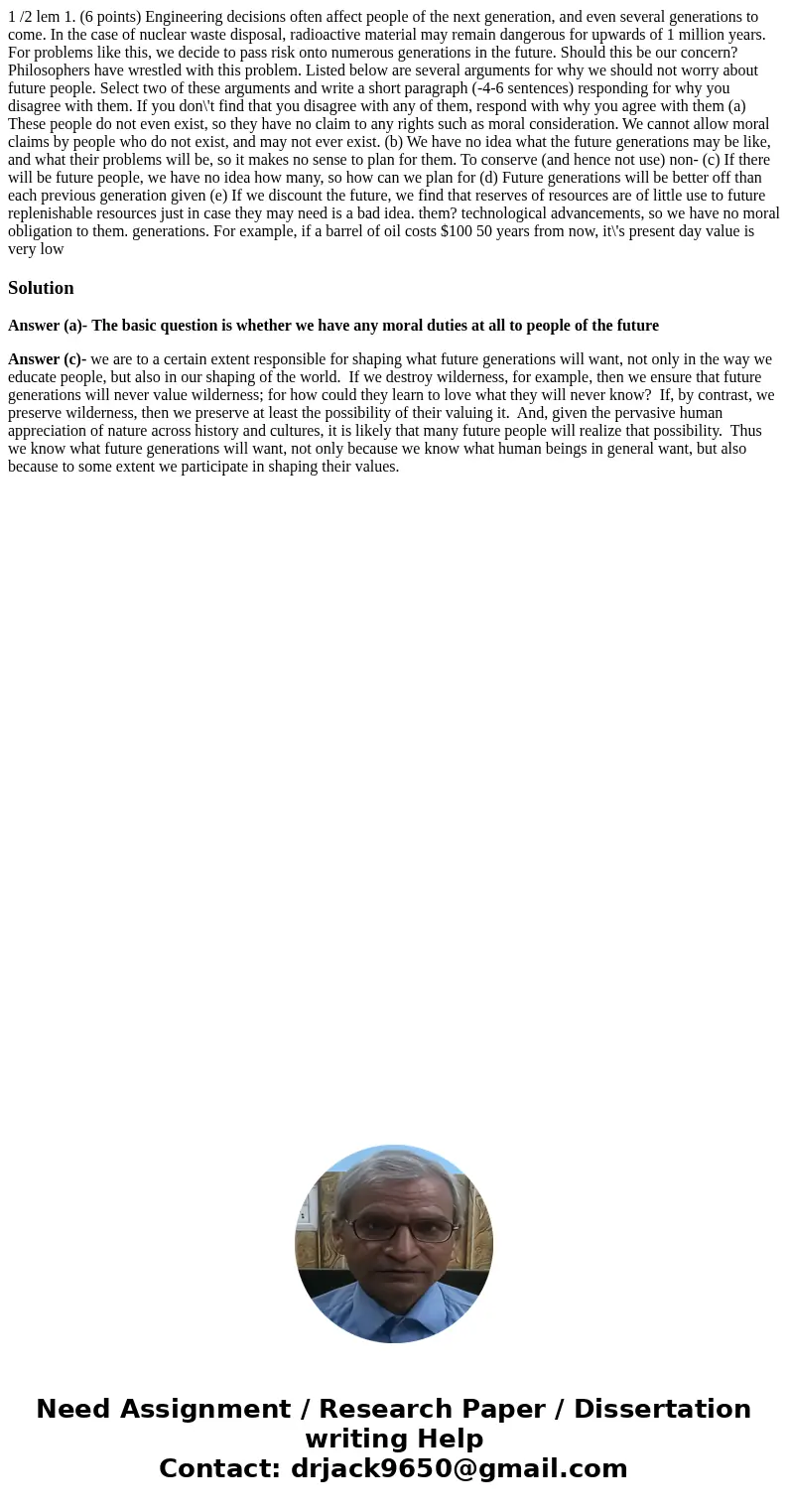1 /2 lem 1. (6 points) Engineering decisions often affect people of the next generation, and even several generations to come. In the case of nuclear waste disposal, radioactive material may remain dangerous for upwards of 1 million years. For problems like this, we decide to pass risk onto numerous generations in the future. Should this be our concern? Philosophers have wrestled with this problem. Listed below are several arguments for why we should not worry about future people. Select two of these arguments and write a short paragraph (-4-6 sentences) responding for why you disagree with them. If you don\'t find that you disagree with any of them, respond with why you agree with them (a) These people do not even exist, so they have no claim to any rights such as moral consideration. We cannot allow moral claims by people who do not exist, and may not ever exist. (b) We have no idea what the future generations may be like, and what their problems will be, so it makes no sense to plan for them. To conserve (and hence not use) non- (c) If there will be future people, we have no idea how many, so how can we plan for (d) Future generations will be better off than each previous generation given (e) If we discount the future, we find that reserves of resources are of little use to future replenishable resources just in case they may need is a bad idea. them? technological advancements, so we have no moral obligation to them. generations. For example, if a barrel of oil costs $100 50 years from now, it\'s present day value is very low
Answer (a)- The basic question is whether we have any moral duties at all to people of the future
Answer (c)- we are to a certain extent responsible for shaping what future generations will want, not only in the way we educate people, but also in our shaping of the world. If we destroy wilderness, for example, then we ensure that future generations will never value wilderness; for how could they learn to love what they will never know? If, by contrast, we preserve wilderness, then we preserve at least the possibility of their valuing it. And, given the pervasive human appreciation of nature across history and cultures, it is likely that many future people will realize that possibility. Thus we know what future generations will want, not only because we know what human beings in general want, but also because to some extent we participate in shaping their values.

 Homework Sourse
Homework Sourse